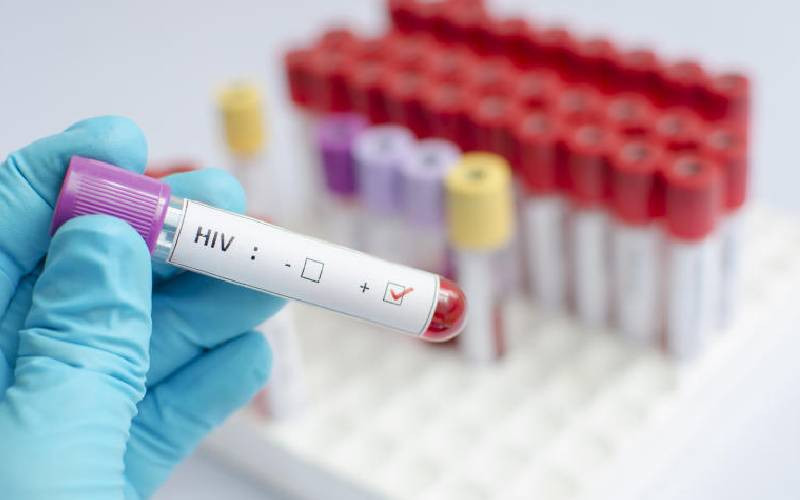
NAIROBI, KENYA: Teachers are the torchbearers of knowledge, the trailblazers that clear the way for children from nursery school to university. At that first level of contact, the child totally trusts the teacher to chart the course to the vast field of knowledge; and the teacher rarely fails to live up to this trust.
Until he or she gets HIV.
Then the world blacks out. The teacher, the light, is disoriented.
“I am very sure I have gone with more than 500 women,” says Benson Lukorito, a deputy head teacher from Bungoma County. His wife died of HIV-related complications and he knows he infected her. “I don’t know where I got it from...I had girlfriends in all the bars in Busia, Kimilili...all over.”
Lukorito says this to a packed attentive hall in a video shot by the Kenya Network of HIV Positive Teachers (Kenepote), an organisation for HIV positive teachers across the country. Released last month at the Kitale Technical Training Institute, the video captures the highs and lows of teachers living with HIV from across the country. Arguably, the first recognised, professional organisation for people living with HIV, the teachers once again live up to their calling of showing the way.
MORE TREACHEROUS
The voices in the video, Journey to Zero, traverse region and gender; with the aim to reach others with a clear message that where they have come from has been more treacherous than where they are going. That the first step to beating HIV is to get tested and then accept your status and learn to live with it.
The Teachers Service Commission, whose presence is quite commanding in the video, has supported the network since its inception in 2003, before it was officially registered a year later. That year, the idea was mooted by three teachers who wanted to come out, declare their status and help fight the pandemic despite stigma being at its peak then.
At that time and in subsequent years, the HIV was associated with instant death and that is why teachers like Lukorito, decided to sink into drunkenness to speed up their date with the grim reaper. Still, many of the estimated 15,680 teachers living with HIV have not been courageous enough to take the test due to stigma.
“I used to drink five litres of chang’aa every day. I wanted to die and people, at my funeral, to say I died of drunkenness and not HIV,” he says in the video. But the reality of death has a way of upsetting even those ‘ready’ for the eventuality.
One day, Lukorito, picked himself from the depth of his drunkenness and headed to a Voluntary Counselling and Testing Centre (VCT). He went to a clinic far away from home; he did not want people who knew him to speculate about his visit to a VCT clinic. The test was done and he got result - he was positive. As he pondered his next move, the medics left him alone in the office and went for lunch. After a while, he picked himself up, took three packets of medicine from the shelf and left. He took the medicine for a while but there was no improvement. He abandoned the drugs and took on his chang’aa more aggressively.
In the course of time, he got proper counselling and started treatment. That is when he knew that the drugs he had grabbed from the VCT were actually family planning pills!
The teachers in the video say the wearer of the shoe is the one who knows where it hurts most. Thus when people casually remark, “It is better to have HIV than cancer”, they do not know what they are talking about. But having HIV when you are disabled is like carrying a double burden. Catherine Mwayonga, is one among ten per cent of Kenyans living with disability. She is also HIV positive.
Because ARVs are not marked in Braille for the visually impaired, Mwayonga, a teacher at the Thika School for the Blind, dangerously overdosed on ARVs.
Stay informed. Subscribe to our newsletter
Discrimination against Mwayonga started right from the onset of her HIV infection. The mother of six sons had asked a medic to test her for the virus but the man “laughed it off despite my protestations that HIV was for human beings and I am human.”
After overdosing on ARVs, she was taken to Kenyatta National Hospital by one of sons and was admitted. One morning, she heard doctors discussing her: “In Bed 12, that lady is HIV positive!” They assumed since she was blind she was also illiterate.
“The ARVs are not marked for us. I used to get mixed up and every day I felt tired and sleepy. I went to the clinic and explained to the doctors what I was going through. We went through the drugs but I had already damaged my body...I had wasted muscles. So my line one treatment failed and I had to be started off on line two.”
LIVED THROUGH REJECTION
More teachers narrate their harrowing experiences immediately they came out and declared they had HIV or people ‘diagnosed’ them by their physical appearance.
Sarah Mbuvi Makau, has lived through rejection; including rejection from the most unlikely quarters. One Sunday, Makau went to church and sat down. No one sat on her pew. Her attempts to talk to the pastor about her situation were also fruitless as he was ‘busy’ every time she wanted to meet him.
Then, as soon as her chama members knew she was HIV positive, they did not want anything to do with her. One day, she tried to give her monthly contribution but no one was willing to receive the money.
“They asked me to go away.
Other chidren discriminated against my children and gossiped about them. The church had rejected me. The chama rejected me. But amid this rejection, I am grateful that the church youth group visited me and encouraged me. One day, I was unwell and wanted to borrow Sh200 to go to hospital. The potential lenders asked, ‘if we give you the money, and you are dying, when will you return the money?’”
Makau, a teacher at Kalandini Primary School, braved all this and much more. When she became very sick, rumours circulated that she had died and as is tradition, a grave was dug in readiness for her burial. But she lived through that dark moment. A live goat was ‘buried’ in her stead and the grave covered.
From the depths of rejection, Makau has emerged a stronger woman, fighting for the rights of those suffering from HIV.
“Now I have grown in the HIV movement – I am active in the fight and have various roles. I have nurtured support groups in the area where I was to be buried. I am a district leader in matters to do with HIV and health. And several other roles...”
At the end of her story, the audience, mostly fellow teachers, wiped away tears. With 1.5 million Kenyans living with HIV and many more having died of AIDS, the people in this hall are either infected or have lost a loved one to the disease.
The video tells the story of 14 HIV positive teachers from around the country, through their disinheritance and the effect on their children. There are also captivating scenes that speak of the moments they found out their status. There is a teacher who went to the ninth floor of a building and contemplated throwing himself down.
There are also many positive accounts. There is one teacher who identifies Aids orphans in her school and encourages them.
The video, Journey to Zero — there is also a book by the same name — narrates stories of despair and hope. Kenepote is now in every county, supporting teachers when they discover they are HIV positive.
 The Standard Group Plc is a
multi-media organization with investments in media platforms spanning newspaper
print operations, television, radio broadcasting, digital and online services. The
Standard Group is recognized as a leading multi-media house in Kenya with a key
influence in matters of national and international interest.
The Standard Group Plc is a
multi-media organization with investments in media platforms spanning newspaper
print operations, television, radio broadcasting, digital and online services. The
Standard Group is recognized as a leading multi-media house in Kenya with a key
influence in matters of national and international interest.
 The Standard Group Plc is a
multi-media organization with investments in media platforms spanning newspaper
print operations, television, radio broadcasting, digital and online services. The
Standard Group is recognized as a leading multi-media house in Kenya with a key
influence in matters of national and international interest.
The Standard Group Plc is a
multi-media organization with investments in media platforms spanning newspaper
print operations, television, radio broadcasting, digital and online services. The
Standard Group is recognized as a leading multi-media house in Kenya with a key
influence in matters of national and international interest.









